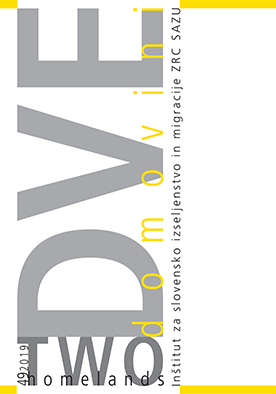The Surveillance and Persecution of Slovene Antifascists in Argentina: How the Authorities Conspired in Combating “Undesired” Immigration
DOI:
https://doi.org/10.3986/dd.v0i49.7262Keywords:
fascist surveillance, emigrants from the Julian March, antifascism, emigrant political engagement, extraterritorial control of emigrants,Abstract
Opposition to the fascist policy in the Julian March, as well as to fascism in general,
led to close surveillance of Slovene emigrants from this area by Fascist Italy. The author first provides an outline of the Italian surveillance of the activities promoted by emigrant associations, then analyses the pressure exerted by the Argentine authorities on leftist emigrants and the sharing of their criminal records with Italy, and finally focuses on antifascist activities promoted by female immigrants. He argues that the Italian extraterritorial surveillance depended on the type of emigrant transnational political engagement, which was motivated by increased suppression of the minorities in the Julian March.
Downloads
Downloads
Published
How to Cite
Issue
Section
License

This work is licensed under a Creative Commons Attribution-NonCommercial-NoDerivatives 4.0 International License.
Authors guarantee that the work is their own original creation and does not infringe any statutory or common-law copyright or any proprietary right of any third party. In case of claims by third parties, authors commit their self to defend the interests of the publisher, and shall cover any potential costs.
More in: Submission chapter





